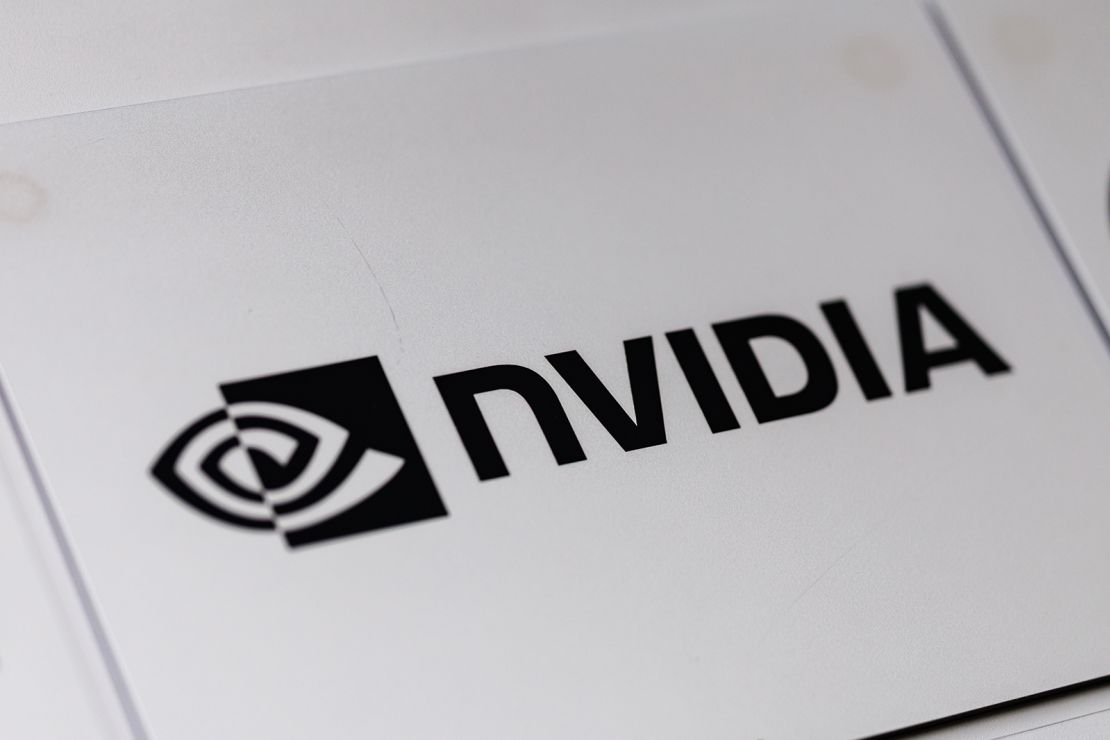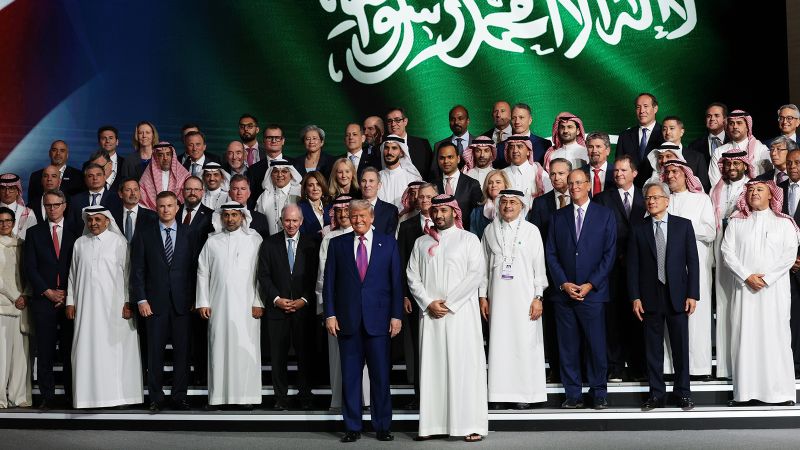CNN
—
US President Donald Trump didn’t show up empty-handed on the first international trip of his second term. Joining him in Saudi Arabia were almost three dozen CEOs of America’s biggest companies, including Big Tech giants that signed $600 billion worth of deals.
They brought some of the most coveted must-haves of the global economy: artificial intelligence (AI) chips that will power the Middle East’s biggest tech infrastructure projects, which are seen as crucial to securing the region’s post-oil future.
The agreements highlight the importance of America’s AI offerings as a key bargaining chip for Trump as he seeks to project himself as a consummate dealmaker and diplomat on the world stage, as well as securing closer ties with countries in the Gulf, especially Saudi Arabia.
Elon Musk, OpenAI’s Sam Altman, Nvidia’s Jensen Huang and IBM’s Arvind Krishna were all part of Trump’s entourage for his first stop in Saudi Arabia on Tuesday, where he was met on the tarmac by the kingdom’s crown prince Mohammed bin Salman.
It’s a significant policy shift from former President Joe Biden, who had promised to make the kingdom a “pariah” after the murder of Washington Post columnist Jamal Khashoggi in 2018. A US intelligence report says that the crown prince, who welcomed Trump on the royal purple carpet on Tuesday, approved the operation to capture or kill the Saudi journalist.

Days before the president left for his three-nation tour of the Gulf, the Trump administration announced plans to rescind a set of Biden-era curbs meant to keep AI chips out of the hands of foreign adversaries, which would have affected their sale to countries in the region.
“The deals celebrated today are historic and transformative for both countries and represent a new golden era of partnership between the United States and Saudi Arabia,” the White House said in a statement Tuesday.
Although Saudi Arabia is the world’s biggest oil exporter, the kingdom and neighboring countries are using money from energy sales to diversify their economies. Saudi Arabia has announced that initiatives dubbed “giga-projects” are key to the country’s Vision 2030 plan, which aims to modernize the country and wean its economy off oil.
As part of those efforts, Saudi Arabia’s Public Investment Fund, its sovereign wealth fund, announced the establishment of AI startup Humain on Monday to position the country as a “globally competitive AI hub.”
AI chip designer Nvidia, the market leader, announced a strategic partnership on Tuesday with Humain to build “AI factories” in the country with a projected capacity of up to 500 megawatts.
To power those facilities, Nvidia will sell several hundred thousand of its most advanced graphic processing units there over the next five years, beginning with 18,000 of its top-of-the-line GB300 Grace Blackwell chips.

“These hyperscale AI data centers will provide a secure foundational infrastructure for training and deploying sovereign AI models at scale,” Nvidia said in a statement.
Like Nvidia’s Huang, AMD’s chief Lisa Su was also in Riyadh. Her company unveiled a $10 billion deal with Humain to build AI infrastructure, while San Diego-based Qualcomm said it had separately signed an agreement with the AI startup to deliver advanced AI data centers.
Keith Strier, senior vice president of global AI markets at AMD, told Reuters that Humain didn’t want to be locked into using a single vendor for AI-related hardware.
After Saudi Arabia, Trump is due to fly to neighboring Qatar and lastly to the United Arab Emirates, which has tech ambitions of its own. In 2017, it appointed the world’s first minister dedicated to AI.
In April 2024, Microsoft announced a $1.5 billion investment in G42, an AI group based in Abu Dhabi, capital of UAE, and chaired by an influential member of the ruling royal family. The New York Times reported on Monday that the Trump administration was considering a deal that could see the sale of hundreds of thousands of US AI chips to G42.
Last year, a US congressional committee called on the Commerce Department to investigate G42’s alleged links to Chinese military companies and intelligence services (G42 denied any such connections). The Microsoft investment required G42 to cut ties with Chinese hardware suppliers, reportedly including Huawei, in favor of US companies.

